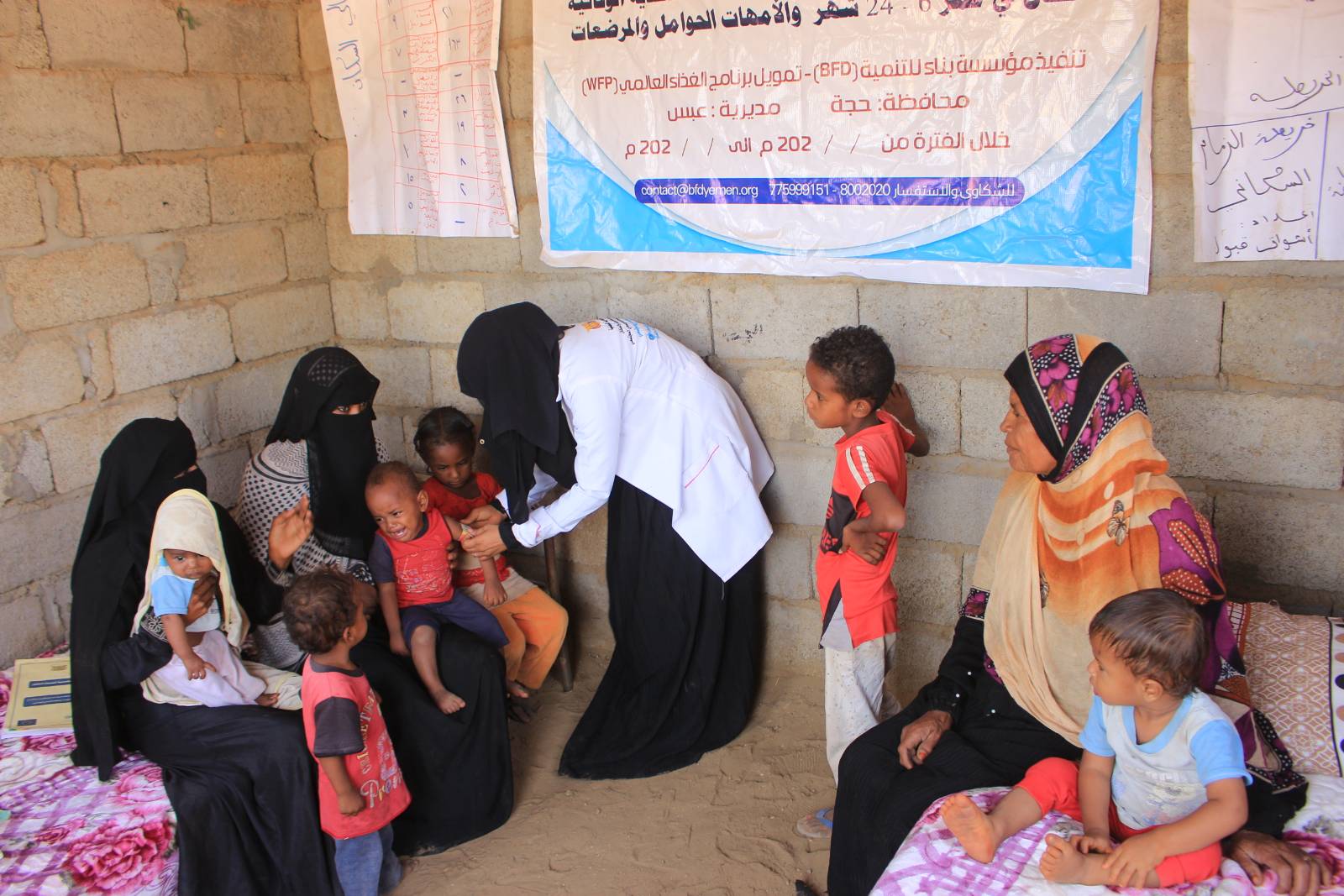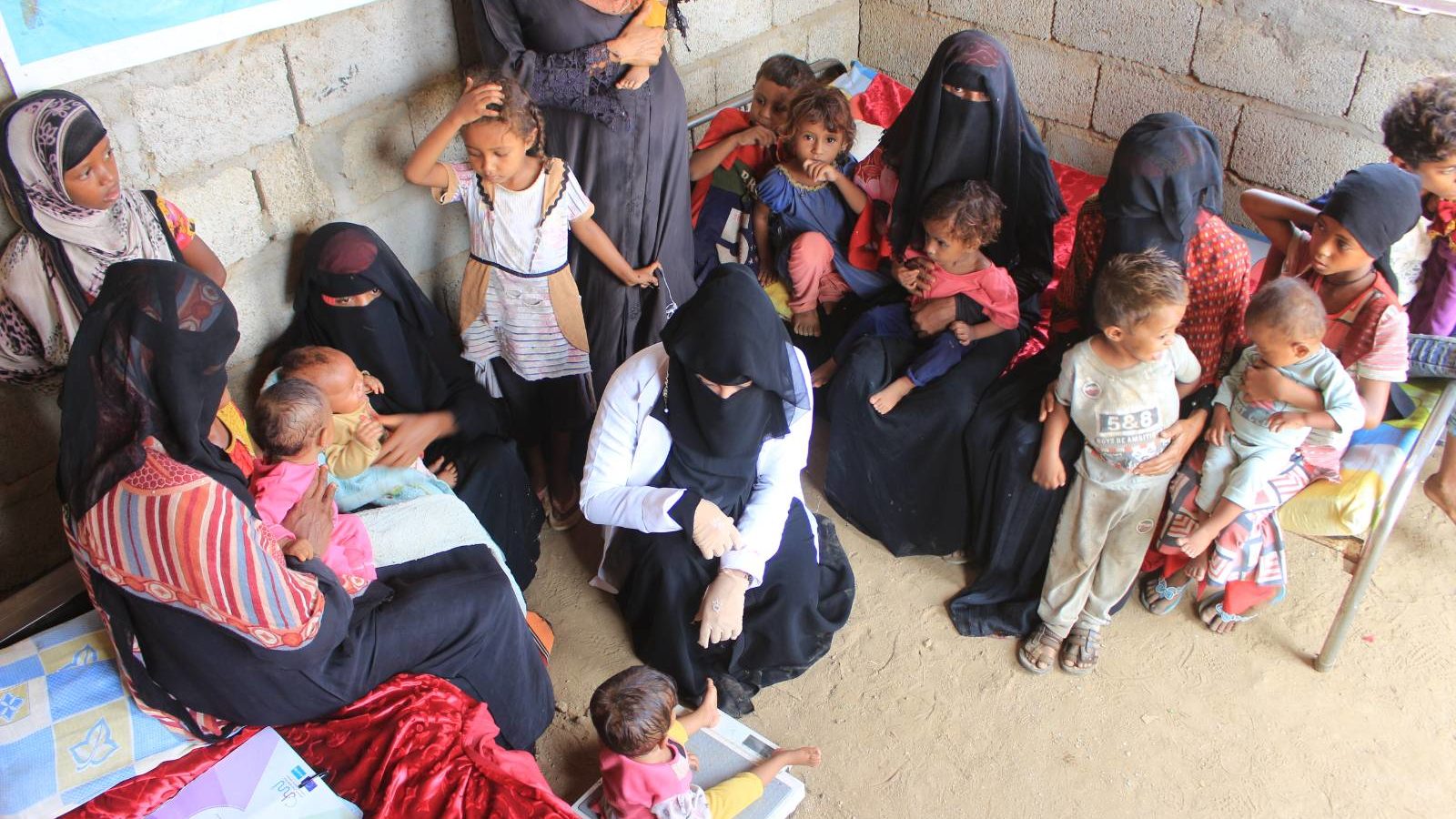These Yemeni Women Went From Marginalized to the Forefront
Three female role models who, despite the war in their country, have been able to raise awareness of women’s rights, and serve their sisters and society as a whole
With Yemen’s civil war deep into its seventh year and no end in sight, women and children continue to be its principal victims. Women are still searching to establish their own identities and seeking to break the restrictions imposed on them by current conditions as well as by Yemeni customs and traditions.
But, despite reports issued by Amnesty International stating that Yemen is one of the worst countries in the world for women, there is another side to the story. A side in which women stand out in the social, developmental and human rights fields and aim to strengthen their roles in building society and restoring its cohesion.
Many women have emerged as leaders, human rights defenders, peacemakers and conflict resolvers. There are also those who became entrepreneurs able to adapt to the war, displacement and deteriorating economic conditions.
‘A great gift’
Ashwaq Mahmoud is a health worker living in the Abs District, in the northwestern Hajjah Governorate, near the Red Sea and the Saudi border. There, the fighting rages and there is abject poverty and camps for internally displaced persons (IDP).
The 24-year-old woman saw in her profession an opportunity to provide humanitarian assistance to the people of her village and neighboring villages as well as those residing in IDP camps, through a makeshift clinic inside a 2-square-meter, or 21.5-square-foot room. Most of the cities, villages, and IDP camps in Yemen lack even the most basic health services, such as first aid. According to a report issued by the International Committee of the Red Cross last year, almost half of the health facilities in Yemen are out of service, while the other half are operating at very limited capacity.

Health worker Ashwaq Mahmoud provides care to children at her clinic in Abs District, Hajjah Governorate, Yemen. (Essa Al-Rajehi)
Previously, Mahmoud volunteered with an international organization working in the country. She saved money from her monthly stipend and transformed one of the rooms in her house into a clinic that some patients have described as the main destination for the sick and for those in need of urgent medical assistance.
“Dr. Ashwaq is the angel who saved my child after he developed a severe fever after he was supposed to be taken to Hajjah city, which is hours away. What she does is a great gift,” a resident of Mahmoud’s village said.
In Abs, which accommodates more than 50 IDP camps, many children die before they reach the age of 5, due to malnutrition, the collapse of the health system, and the lack of basic medical services such as immunization and primary care.
Nearly 2.3 million children under the age of 5 in Yemen are projected to have suffered from acute malnutrition in 2021, four United Nations agencies warned on Tuesday. Of these, 400,000 are expected to suffer from severe acute malnutrition and could die if they do not receive urgent treatment, according to the UN.
Mahmoud provides her services free of charge to try and save these children. She said the poverty of these IDPs and of the other residents can preclude them from traveling to receive treatment in far-away health centers, and that this is the leading cause of many deaths among children and women.
In 2019, the child mortality rate in Yemen – the deaths of infants and children under 5 years old – was 58.4 per 1,000 live births. The comparable figure for the US was 6.5 per 1,000.
“This prompted me to pursue my goal to provide medical services to everyone for free,” Mahmoud said. “I received support from some local organizations and businesspersons who are providing medicines and medical supplies.”
She is now completing her medical studies to acquire broader expertise in health care.
Mission against racism
In the Taiz Governorate in southwestern Yemen, hundreds of members of the “marginalized community” –persons who are dark-skinned and of African descent – live in social isolation, with instances of violence between them and the rest of society. This comes on top of the difficult economic conditions experienced by the members of the community and their difficulties in procuring their most basic needs: water, food, and medicine among others.
However, Misk al-Maqrami, a human rights activist and head of the Kefaya Foundation for the Rehabilitation of Marginalized Women, has taken on the mission of building a bridge between the marginalized community and others in Yemen. Maqrami tries to paint a clear picture of the needs of the community and to provide many services and assistance to them, including the transport of water.
The members of the marginalized community mostly work in garbage collection, cleaning and sanitation, and as cobblers. Their work in these professions – which are not desirable in Yemen, in addition to the pervasive racism in the country, has caused them to live in separate areas away from others.
Maqrami took The Media Line to some of the neighborhoods where the marginalized community lives. She said her foundation has been able to enhance the social and developmental capabilities of persons from the community, adding that the government and other communities have neglected them when it comes to providing aid and services.
“They are a crushed community that was subjected to compound racism,” said Maqrami. “My wish is that the racism and the inferior view of women in general, and of women from the marginalized community in particular, will stop.”
Raising awareness
Abeer Mohsen, 27, a former journalist and anchor for Yemen Times Radio, now lives in Beirut. During her time in Yemen, she learned of and dealt with many issues related to women and the violations they suffered at the hands of the parties to the civil war.
Mohsen noticed the low level of women’s awareness of such issues and decided to make raising such awareness her life’s mission. She, along with other activists, sought to launch advocacy campaigns to this end. Mohsen participated in presenting a draft law to ensure that women obtain their full rights.
But when she began documenting violations in general and violations against women in particular, she was forced to leave Yemen to escape harassment by the parties to the conflict.
“I tried to hide my name when working to avoid harassment, but this tactic did not work and I received many threats that prompted me to travel and leave Yemen,” she told The Media Line.
Mohsen said that she misses Yemen, her family, and her friends, but it was not possible to stay, especially if she wanted to continue her work. Now, she is trying to continue documenting and monitoring all violations against women, and she is still working toward her goal of raising Yemeni women’s awareness of their political, social, and legal rights.
We can…
These three women are but a few out of the hundreds who have been able to use their country’s civil war to motivate themselves to realize their full potential and serve other women, as well as Yemeni society as a whole, through their experiences, awareness-raising work, qualifying and training other women, and offering services to other women.
These three role models send a powerful message to all for International Women’s Day, observed on March 8. The message, in a country wracked by seven years of war and dubbed by the United Nations as the world’s worst humanitarian crisis, is “We can.”


